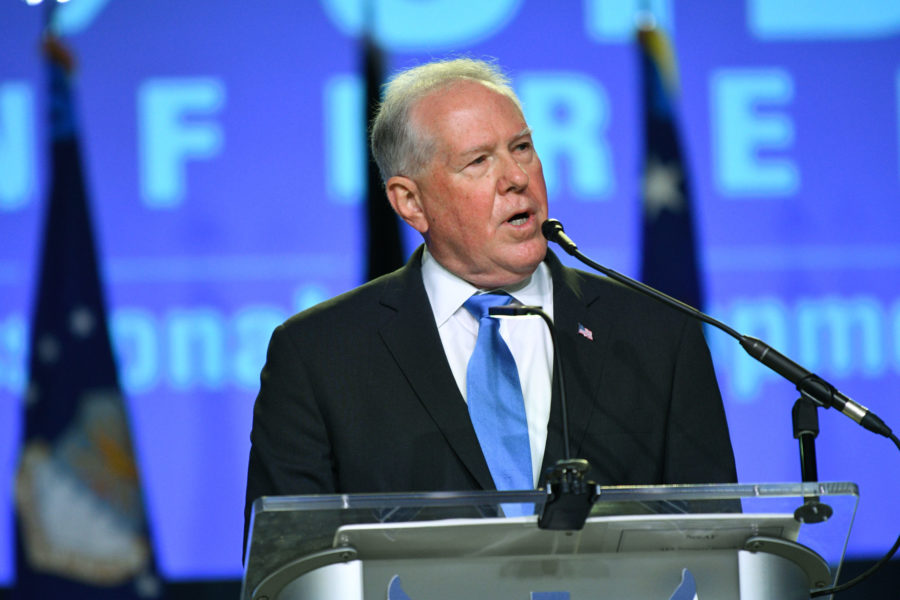Two days before the American deadline to withdraw from Afghanistan, with thousands of Afghans pressing to reach Hamid Karzai International Airport—and anticipating an imminent terrorist threat—an Air Force drone struck a car in Kabul. But instead of stopping a terrorist threat, U.S. Central Command would later acknowledge a mistake that killed 10 civilians.
Defense Secretary Lloyd Austin directed Air Force Secretary Frank Kendall to launch an investigation into the factors that led to the accident, and on Sept. 21, Kendall appointed Air Force Inspector General Lt. Gen. Sami D. Said to direct the investigation.
“In most situations, we have the luxury of time,” Kendall said at a Sept. 20 press roundtable at the Air Force Association’s Air, Space & Cyber Conference in National Harbor, Md.
“I have watched those operations,” he added. “In the very tragic case that we just had, we didn’t have the luxury of time. I think that was a major factor in the mistake that was made.”
After much speculation, CENTCOM commander Marine Corps Gen. Kenneth F. McKenzie Jr. admitted the error at a Sept. 17 Pentagon briefing.
“Having thoroughly reviewed the findings of the investigation and the supporting analysis by interagency partners, I am now convinced that as many as 10 civilians, including up to seven children, were tragically killed in that strike,” McKenzie said. “Moreover, we now assess that it is unlikely that the vehicle and those who died were associated with ISIS-K or were a direct threat to U.S. forces.”
McKenzie offered his condolences to the family and friends of those killed after the vehicle and target had been tracked for eight hours. The revelation followed a New York Times report indicating that the target of the strike was Zemari Ahmadi, an aid worker employed by a U.S. nonprofit.
“This strike was taken in the earnest belief that it would prevent an imminent threat to our forces and the evacuees at the airport,” McKenzie said.
Pentagon spokesman John F. Kirby on Sept. 20 first indicated that an Air Force investigation would be announced, noting the IG would have 45 days to make recommendations.

